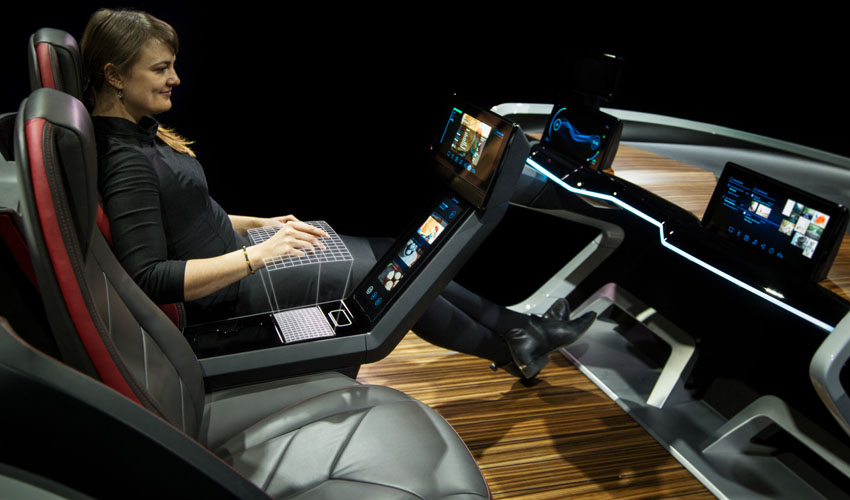The internet of things companies has progressed well outside a slogan that is to attain at some point in the coming year with real-world samples that can originate in factories, businesses, homes all over the world. When you look at the industry at most of the available IoT implements and systems, the wide-ranging feeling is that of looks nonchalant but don’t need it.
Apart from this, IoT has a technology that talent a great many things. Other than that, there are plentiful twists they have yet to work out, and the middle of endless new IoT devices is causing a lot of misunderstanding among consumers. There is some most powerful internet of things companies that have a long way to go before you can enjoy the benefits of mature IoT platform.
So, all companies are trying to making impressive efforts to hurry that future. According to research, IoT will generate $300 billion in revenue by 2020, with averages of how many related devices were fluctuating from 25 billion to above 200 billion.
IoT was already making big waves in the energy world and constructs industries it is expected that many of the most famous technology monsters have invested in IoT. Below is the most powerful internet of things companies in 2017.
1- Amazon Web Services
Amazon web services (AWS) has a diversity of fields, but the cloud was figuring, and IoT are firmly intertwined. It is also working on Amazon Kinesis, Amazon S3, Lambda, Amazon DynamoDB, and Amazon Machine Learning to size IoT applications.
Other than that, it offers a way for employers to control and display all the linked devices on an IoT system. It also proposals a way to supply and process the massive quantities of data generated by IoT. AWS has a support of Amazon already pedals a significant portion of cloud subtracting and could even more with IoT.
AWS plays a significant role in the Internet of things. It also allows their users to build own Internet of Things applications that can control IoT instruments data tenuously.
2- ARM
The chip British base designer ARM made an intensive effort in 2016 to thrust itself into the IoT space. The company’s low-power strategies have been the support of consumer stuff like smartphones and set top cases for years now.
For making it well situated to branch out into the IoT network with enterprises that can be rummage-sale in low-powered associated sensors.
3- Google
Google has been one of the biggest platforms of connected to homes, for years. But it is true; its struggles at making this realism have not continuously been successful. In 2012, it was launched Android products, but it unsuccessful to achievement power over tuning conflicts with electronic manufacturers.
After two years, Google developed Nest, a creator of smart usages. It has some problems but after the 3rd time is the charm. Recently, Google created home related product Google Home– it is well. Google Home is the answer to the most famous Amazon Echo. Rather than that, it has some advanced features as compared to Echo.
4- Dell
Dell is a big company of PCs and IoT is a core business quantity of Dell. Now it is famous or well-known due to own affordable PCs in the customer space and its servers in the enterprise. Michael Dell dedicated significant time during his famous speech at EMC World in 2016. The last before Dell’s attainment of the company was accomplished, to the idea of the internet of things. He said:
“By 2031 the number of connected devices will grow from roughly eight billion today to perhaps 200 billion or more,”
Again he said:
“We are at the very beginning of the internet of everything. An intelligent world pulsing with unprecedented processing power and productivity”
5- Cisco
Cisco is an American networking giant offers internet of things structure across a broad series of industries as well as utilities, connected factories, and smart grid, gas, oil, nautical, rail, aviation, roadways, and mass transit.
The company provides field network structure for the checking and control of vigor distribution, supervision and application enablement, IoT-enabled cyber security, and embedded systems.
It is a big company and also works in building smart cities. Last year, its business progress manager for EMEA and Marko Bass, Russia, drew Cisco’s version to the computer world. The UK for the town of Hamburg as well as automatic ports and devices in every lamppost.
6- Bosch
Bosch is a big company of micro-electromagnetic sensors- MEMs, and in 2015, the company decides to put internet of things in its strategy, when it launched its IoT suite. You will find its sensors in the home and thermostats. But also it uses in preserving the best hotness for growing asparagus and for checking racing car data.
Last year in March, Bosch threw a cloud overhaul to boost its IoT devices and keep up with contestants such as AWAS. CEO of Bosch said:
“As of today, we offer all the ace cards for the connected world from a single source. The Bosch IoT Cloud is the final piece of the puzzle that completes our software expertise. We are now a full-service provider for connectivity and the internet of things.”
7- Samsung
Samsung makes own Internet of Things substructure kit like IoT gateways and Love Power Wide Area technologies that make use of immoral variety. Apart from this, it has a customer IoT division that attention on products for the associated home.
The SmartThings starter Kit, for example, as well as linked plugs and wave sensors that relation back to an essential hub. All are available to view through a supplementary app on your phone.

